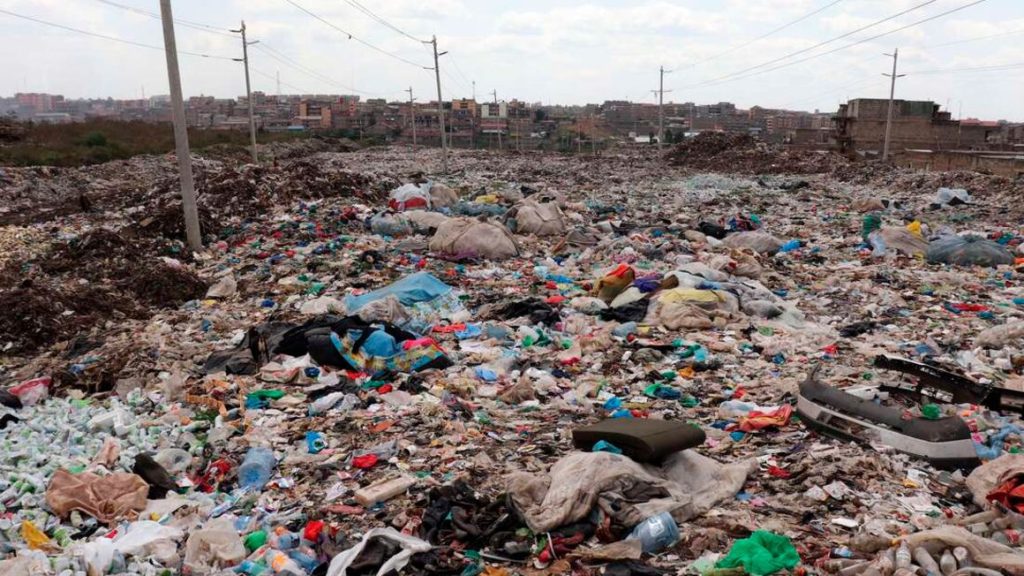The United Nations has issued a warning about the escalating threat to human health and the environment from hazardous waste generated by plastic in Africa. In response, the United Nations Environment Programme (UNEP) Regional Office for Africa is advocating for the inclusion of all forms of plastics in Annex 1 of the Bamako Convention. This addition would prohibit and regulate the importation and trans-boundary movement of hazardous waste within African states.
Concerns Over Plastic Pollution Gains
UNEP expressed particular concern about the potential reversal of progress made against plastic pollution in various countries. For instance, Kenya, which has one of the world’s strictest bans on plastic, is reportedly negotiating a bilateral trade agreement with the United States that could weaken its domestic laws on plastics under pressure from the US chemical and plastics industry. UNEP’s policy brief warns that growing internal trade and porous borders could undermine the efforts of other African nations.
Call to Action
To combat this issue, UNEP is urging African countries to collaborate with like-minded World Trade Organization (WTO) members to launch a “Make trade work against plastic pollution” campaign at the upcoming WTO Ministerial Conference scheduled for November-December 2021. Additionally, UNEP is encouraging the formation of regional economic communities (RECs) to activate regional mandates, such as the Polythene Materials Control Bill, to resist external pressures from trading partners and industrial lobbies.
The Scale of the Plastic Problem
The scale of plastic waste is staggering. Of the 6,300 million tonnes (Mt) generated globally, only about 9% has been recycled, and 12% has been incinerated. A concerning 79% accumulates in landfills. UNEP warns that buried plastics can leak harmful chemicals into groundwater from deep landfills. Furthermore, toxic gases emitted from open-air burning of plastic waste pose serious health risks, including cancer, heart disease, and respiratory issues.
Trade and Importation Issues
Although data on plastic importation and consumption in Africa is often fragmented, it was estimated that plastics accounted for about 5% of the total value of global trade, equating to approximately $1 trillion in 2018. New trade agreements raise concerns that low-income countries in Africa may become the next dumping grounds for plastic waste, especially following China’s ban on the import of non-industrial plastic waste.
According to UNEP, Egypt is the leading importer of plastic in Africa, accounting for 18.7% of imports, followed closely by Nigeria at 17%, and South Africa at 11.7%. Other notable importers include Algeria, Morocco, and Tunisia.
Future Projections
From 1990 to 2017, over 117.6 Mt of plastic, including 86.14 Mt of primary polymers and 31.50 Mt of plastic products, entered Africa through 33 countries. Projections suggest that by 2030, these countries will consume approximately 235.3 Mt of plastics and polymers. If current trends persist without policy changes, this figure could escalate to 344 Mt for the entire continent.
Policy Recommendations
UNEP advocates for a comprehensive approach to address plastic pollution across Africa. Recommended policy amendments include:
- Environmental Taxation: Instituting a tax based on the environmental performance of plastic products.
- Subsidies for Innovation: Providing financial support for research and innovations that address plastic waste.
- Removal of Production Subsidies: Eliminating subsidies that encourage plastic production and trade, particularly those benefiting the petrochemical industry.
- Consumer Incentives: Increasing prices on plastic products, implementing waste charges, and employing deposit-refund schemes for plastic bottles.
- Recycling Initiatives: Promoting the design of biodegradable plastics and developing facilities for the chemical recycling of mixed plastic waste.
As the continent faces mounting pressure from plastic waste, UNEP emphasizes the urgent need for cohesive action to protect both public health and the environment.




















